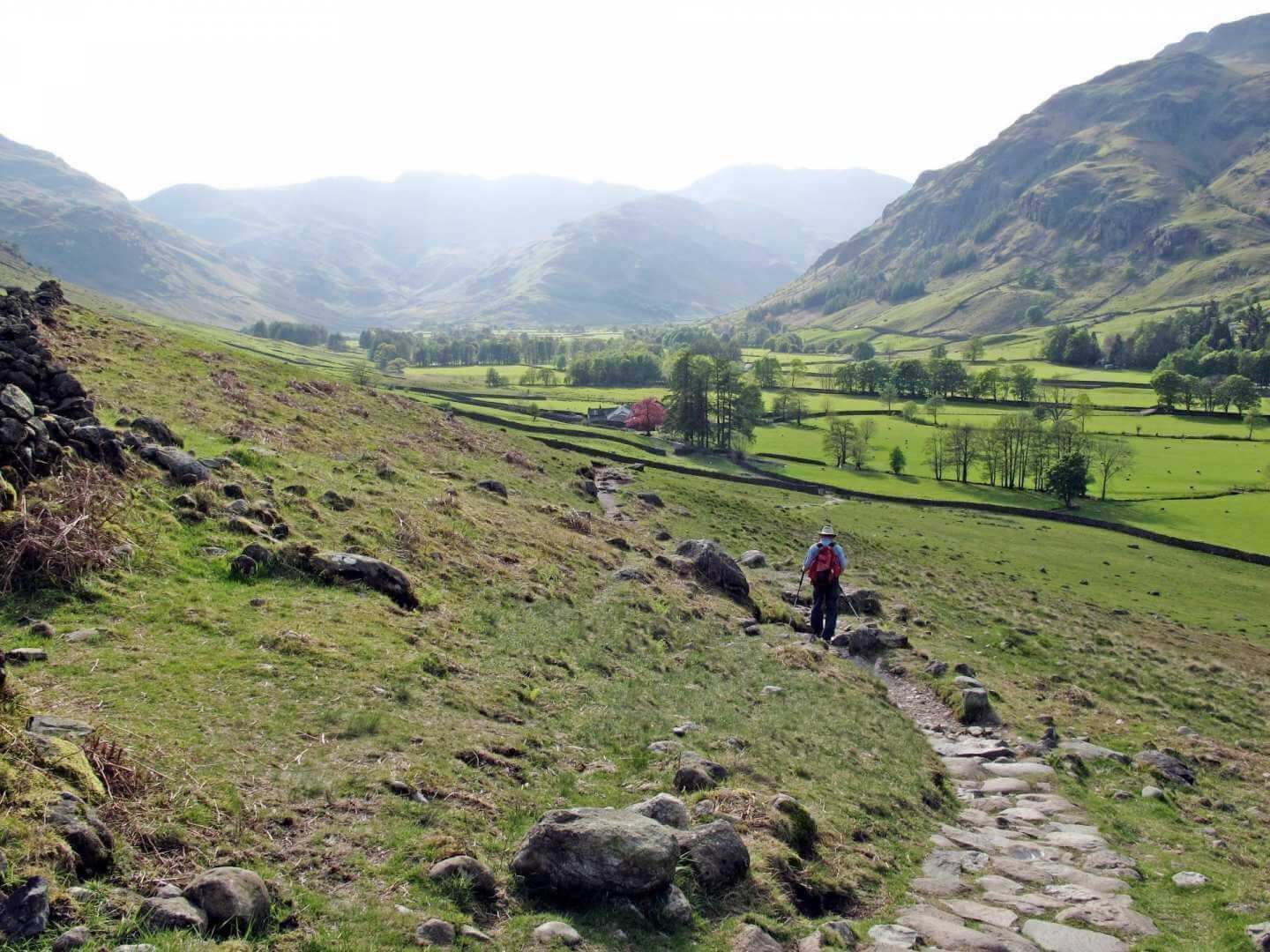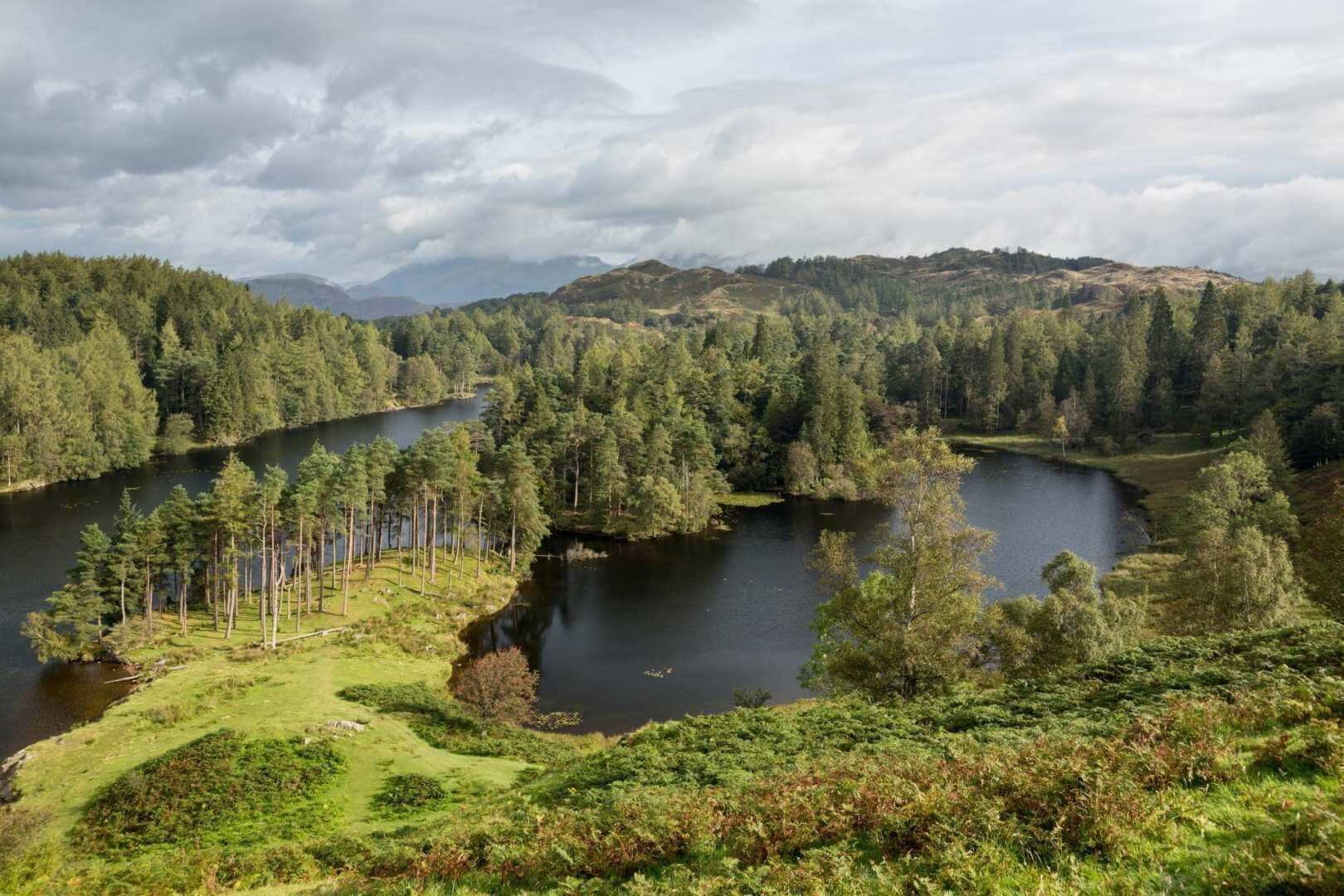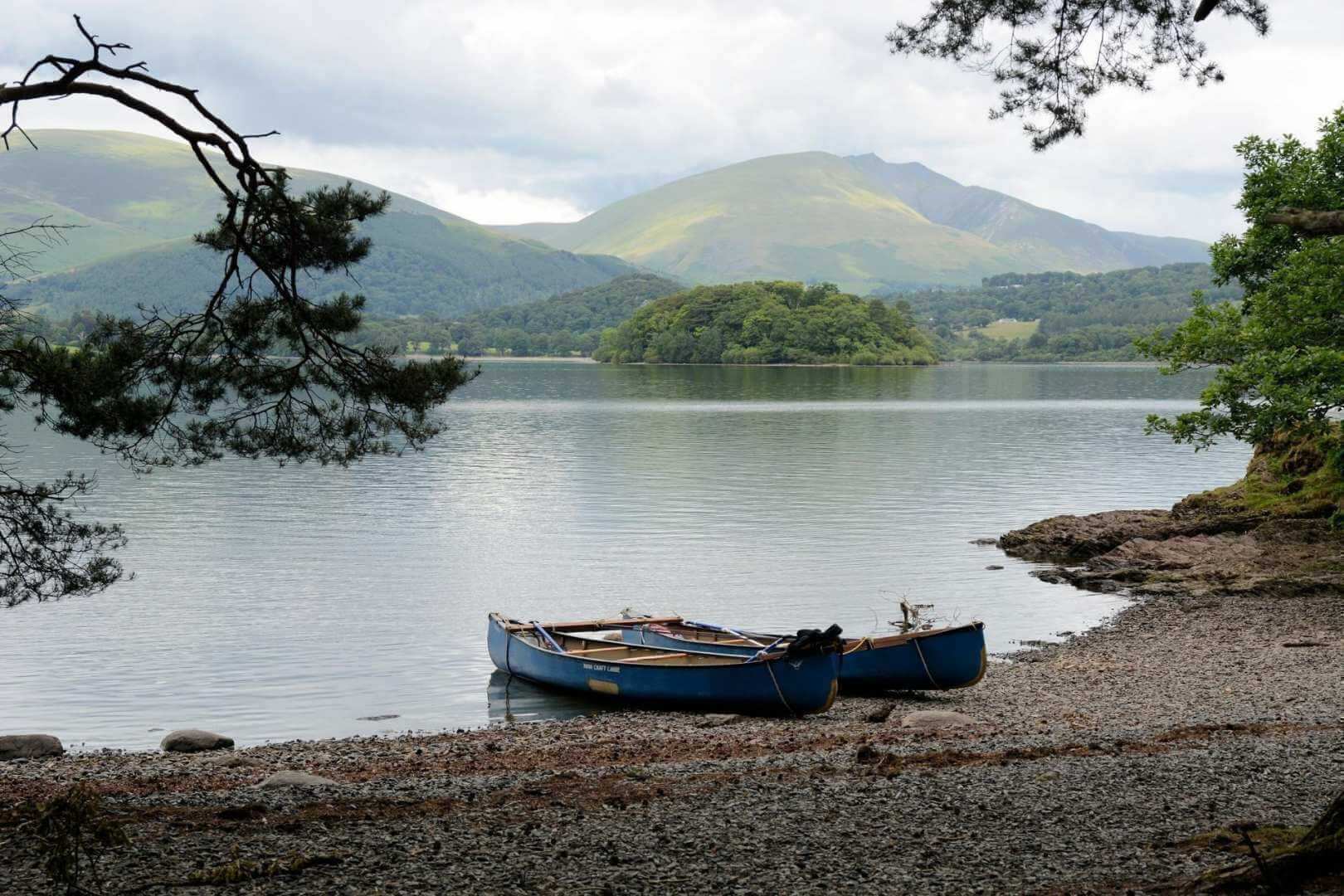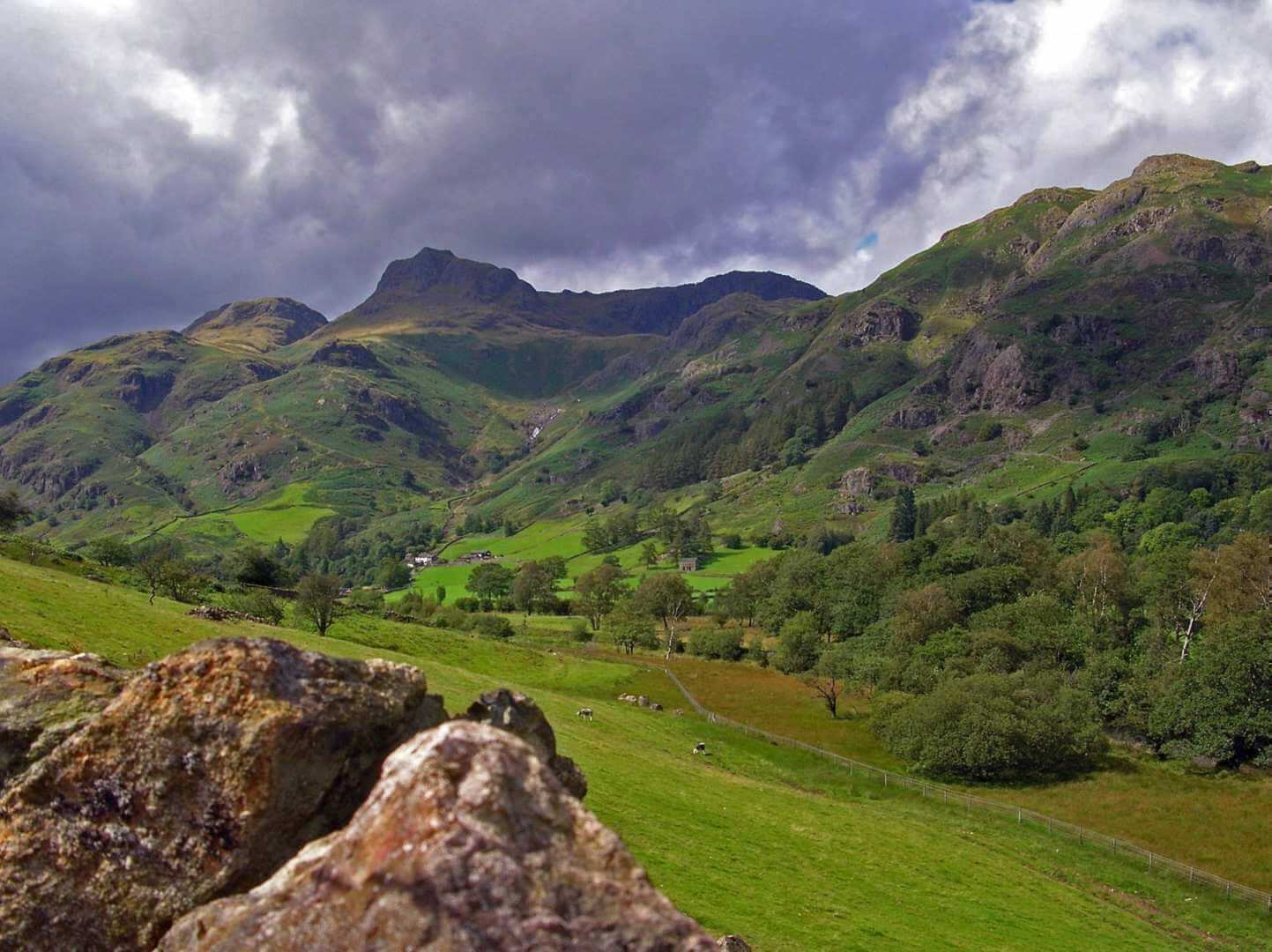Five Great Things to See along the Cumbria Way
Enhance your walking holiday along the Cumbria Way with visits to these great spots.
Five Great Things to See along the Cumbria Way
https://www.contours.co.uk/five-great-things-to-see-along-the-cumbria-way-post
Stan Laurel was born in Ulverston and the town is very proud of that fact. There are plenty of places to visit to learn more about their most famous son, including the Laurel and Hardy Museum which tells you all you’ll ever need to know about Laurel and Hardy. Of all the tributes though, my favourite is the bronze statue of the pair standing outside Coronation Hall in the centre of town. They’re nonchalantly leaning against a lamppost watching the world go by, and if you take a look around the back you’ll spot a small dog nipping at their heels.
On 4th January 1967 Donald Campbell was tragically killed whilst attempting the world water speed record on Coniston Water. Black and white images of his airborne boat are etched into the minds of anyone who has ever seen the footage, and there are plenty of reminders in the town of his achievements. He once said, “It’s a sad day when a man loses the enthusiasm of a schoolboy” which will ring true with any adventurers and long distance hikers. You can visit his grave in the town, then take a wander down to the boating centre where you’ll find another small memorial.
The next interesting site doesn’t have a plaque or a statue, but it is a hugely important piece of local history. The beautiful Langdale valley was once home to a Neolithic axe factory. High up near the top of the Langdale Pikes is a band of volcanic rock known as “green tuff”, which our ancestors used to carve a variety of axe heads. As well as being used for their intended purpose, many were highly polished and used to indicate status and wealth. Examples of the axe heads can be seen in Kendal Museum and specimens have been found as far afield as Northern Ireland and Lincolnshire, giving us a valuable insight into their trading routes.
Millican Dalton was a local character who did what many people these days only dream of – he said goodbye to his office life and instead embraced a life of outdoor adventure. Born in Cumbria, his family moved south after his father died, and Millican worked in insurance for 20 years before deciding enough was enough. He spent his summers living in a cave near Castle Crag, making money from taking Victorians on adventures on the fells and across the lakes. He was known for his storytelling, coffee drinking and vegetarian lifestyle – cooking bread and porridge oats over his campfire. He was also an early member of the Fell and Rock Climbing Club, an ardent supporter of women climbers and an early pioneer of lightweight camping equipment, which he used to make in his cave.
Once you move north beyond Skiddaw and Blencathra, the landscape changes dramatically as the high fells fall away behind you. There are red squirrels aplenty in this neighbourhood as well as a couple of hidden gems. Caldbeck is a pretty little village, and a short walk from here will take you along the river Caldew past the remains of a bobbin mill and on to The Howk. Bobbin mills were scattered right across the county, with the ample woodlands providing the raw materials to produce bobbins for the mills of Lancashire, and the mill here once boasted the largest waterwheel in the country with a 42 foot diameter. The Howk is far from the largest waterfall you’ll see on your trek, but it’s certainly one of the prettiest, sitting deep in the gorge it’s carved for itself over the millennia
These are just a few of the sites of interest along the Cumbria Way; it’s a long old walk, but keep your eyes open for information boards along the way telling you more about the history and wildlife of the region.
You can find plenty more interesting facts like these in Beth and Steve Pipe’s book Historic Cumbria Off the Beaten Track – click here to see what areas they have covered and to buy your copy.



